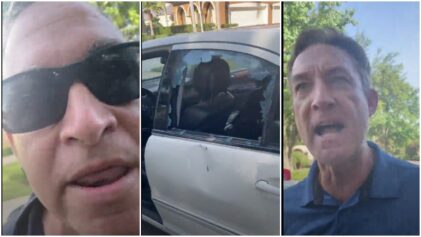Zimmerman Murder Trial – Cecil Smith, the new police chief in Sanford, Florida, is full of energy, bounding down the road of single-story, wooden houses which are nestled among the dark, green lushness of Florida’s fauna.
He is on a mission to “reconnect with the community.” The black residents look on curiously at this African-American officer going out of his way to be nice.
One man, carrying a six-pack of vodka coolers, tries to show him his driver’s license, to prove he is over 21.
“No need, no need,” says Smith.
He approaches a group of men having a barbecue at the front of their house. There is an odd notice on the house saying that police can ask people to disperse if they are making noise.
The chief shakes hands all round and then clasps one of the men tight, clapping him on the back. The man’s expression suggests it is not every day he is hugged by a cop.
‘Changing perceptions’
There is not a lot of trust in the police in this part of town after the shooting of an unarmed black teenager, Trayvon Martin, by a volunteer neighborhood watchman, George Zimmerman.
The police took weeks to arrest him, accepting his story that he thought the teenager was acting suspiciously, and had attacked him.
He was eventually charged with murder and the trial starts today.
It is going to be a difficult time for the town. One activist explained why the case became a cause throughout the city, and throughout out the nation.
“Zimmerman walked in the front door of the police station and out the back,” the activist says.
“It said to black people here that black boys can get killed and all you’ve got to say is ‘I was standing my ground,’ and you can walk away.”
I want to know if the new chief of police agrees that young black men are assumed to be up to no good.
“I am not going to stand here and say every black kid is a criminal. I have two black sons,” Smith says.
So do black teenagers get a raw deal?
“It does happen. Our biases, sometimes people see the color before they know the person and that is the perception that we are trying to change within the city of Sanford,” he adds.
That is pretty diplomatic. The guy on the front porch with the barbecue is not.
“Zimmerman should hang,” the neighbor says. “They just let him go to show they can kill a black boy.”
‘Race card’
Many white people despair of this attitude. Few will say so on camera or into a recorder, but there are some who say privately that “they” should “get over it”.
“They” and “them” are words you hear a lot around town.
Read more: Mark Mardell, BBC


